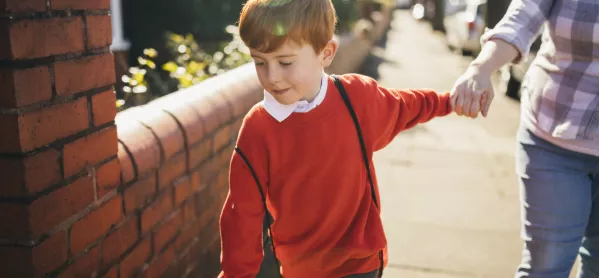The proportion of pupils in school has more than doubled at the start of a new phase in the return from the latest Covid lockdown, new figures suggest.
Around a third of the pupil population in primary, secondary and special schools was in last week, but that rose to over two-thirds in the first figures for this week.
Today’s daily update on coronavirus data and trends from the Scottish government shows for the first time the impact that the second phase of the return to school is having on attendance.
Overall, 68.7 per cent of Scottish pupils were back in school on Monday of this week (15 March), up from 29.2 per cent of pupils who were in school on Friday of last week (12 March).
Schools reopening: Return of pupils to go ahead from Monday
Return of pupils: The preparation behind the scenes
Also this week: Covid rise could be linked to pupils’ return
Monday marked the beginning of the second phase of the return to school, with all primary pupils able to return to the classroom and all secondary students promised some in-person learning each week.
Schools reopening: A third of students in secondary
It was a move that blindsided secondary school leaders when it was announced on 2 March, given that they had been expecting only senior students to return part-time. Some described it as the “worst-case scenario” given the logistical problems that the change presented to secondary schools at short notice.
Now, the new figures show the extent to which pupils in the different sectors were able to return on Monday of this week.
In primary schools, attendance went from 45.5 per cent on Friday to 95.3 per cent on Monday; in secondary, attendance went from 7.3 per cent on Friday to 33.2 per cent on Monday; and in special schools, attendance went from 29.2 per cent on Friday to 68.7 per cent on Monday
On Monday first minister Nicola Sturgeon said the first phase of the return to school - which began with P1-3 and pre-school children going back from Monday 22 February - could be responsible for “a slight increase” in Covid cases. However, the chief medical officer, Dr Gregor Smith, said the rise in cases was not as great as he had thought it might be and he said he was “not overly concerned”.




